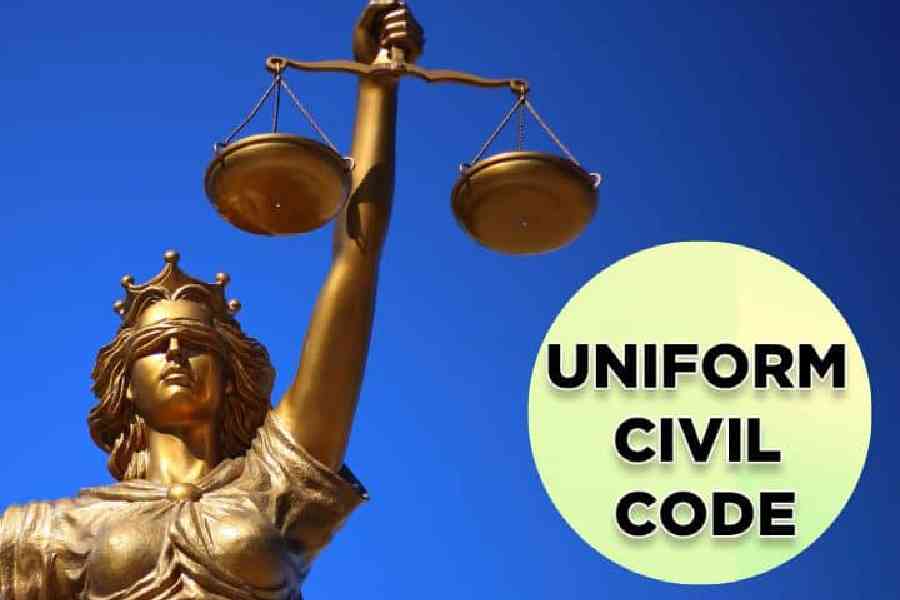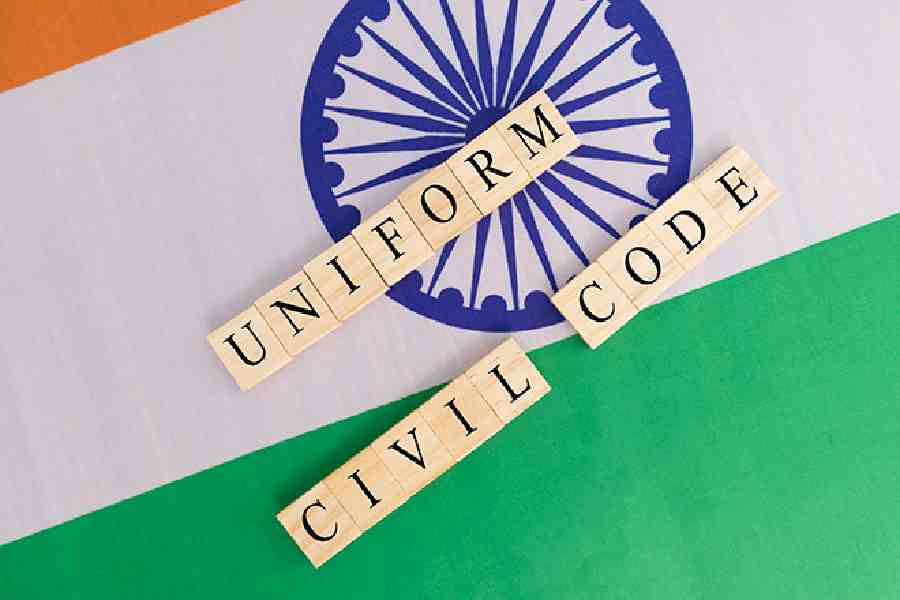The AIADMK, the biggest ally of the BJP in southern India, and the ruling DMK in Tamil Nadu have placed on record their opposition to the proposal for a uniform civil code (UCC) by the Narendra Modi government.
The uniform position taken by the two arch-rivals reflects the deep misgivings the nebulous proposal has triggered among several sections of citizens in multiple regions of the country.
AIADMK general secretary and former chief minister Edappadi K. Palaniswami said the party had clearly spelt out its stand on the issue in the 2019 Lok Sabha election manifesto.
“Read our party manifesto for the 2019 Lok Sabha polls,” Palaniswami told reporters at the party headquarters in Chennai on Wednesday evening after a meeting ofthe AIADMK district secretaries.
Under the section “secularism”, the AIADMK manifesto had stated that the party would urge the Union government “not to bring in any amendment to the Constitution that would adversely affect the religious rights of minorities in the country”.
Over two decades ago, Jayalalithaa, the then AIADMK leader, had sent some signals that suggested the partywas not averse to a UCC. But the party subsequently revised its position, probably based on feedback from the ground.
If the AIADMK has so far declined to change its position against the UCC, as stated in its 2019 manifesto, the reservations in Tamil Nadu were articulated further by DMK president and chief minister M.K. Stalin on Thursday.
Stalin said the UCC “is meant to target people who are against the BJP”.
Stalin accused the BJP of planning to remove the existing criminal and civil laws by bringing in the UCC to further the party’s ideology and political agenda.
The ”implementation of a uniform civil code will destroy the diversity of the nation”, DMK Rajya Sabha MP and senior lawyer P. Wilson wrote in a six-page letter to the Law Commission, which has sought the views of the public on the UCC.
Wilson, a member of the parliamentary standing committee on law and justice, questioned the 22nd Law Commission “reopening the public consultation” on the UCC when the 21st Law Commission “spent two long years hearing stakeholders, holding consultations and painstakingly publishing a consultation paper” in 2018.
When the 21st Law Commission had expressed the view that the UCC “is not preferable”, what has warranted a re-look barely a few years later, Wilson asked.
“To the public at large, it (rekindling the exercise) seems a response to a call of the ruling BJP at the Centre to implement the UCC with an eye on the 2024 general election,” Wilson said.
Asking what steps the 22nd Law Commission had taken on the “recommendations and suggestions” highlighted in the consultation paper of its precursor, Wilson said: “India is a diverse nation, having religious, cultural and linguistic diversity like none other.... Even within Hinduism, there are several subcultures, each with their own unique identity, tradition and customs. If you take one set of personal laws and apply it with brute force to all religions, sub-sects and denominations, it would destroy their uniqueness and diversity.”
Emphasising that “majoritarian morality must not supersede personal laws”, Wilson underlined that in Christianity, marriage is a sacrament and a facet of religion. If the UCC provides for marriages to be registered before an authority like a registrar, it denigrates and desecrates a holy sacrament, he said.
“Ultimately, therefore, the UCC targets religious practices and interferes with the free practice of one’s religion,” Wilson said in the letter.
Though the UCC is seen as “pro-Hindu”, ironically, it will “damage Hindu rites and customs also”, the DMK MP said. Even within the Hindu religion, certain groups such as tribal communities do not support the implementation of the UCC, he said.
He added: “Instead of thrusting a uniform civil code, we should focus on encouraging dialogue, understanding and gradual reforms within communities to weed out undesirable practices. It is through these (proactive) means that we can strike a balance between individual rights, freedoms and communal harmony.”
Election invalid
Madras High Court on Thursday declared as null and void the election of O.P. Raveendranath Kumar of the AIADMK to the Lok Sabha from Theni in 2019 on complaints of suppression of sources of income and cash distribution. Kumar was the sole AIADMK candidate to win a seat in the last Lok Sabha elections from Tamil Nadu.
Justice S.S. Sundar, however, granted him a month’s time to appeal the ruling.











